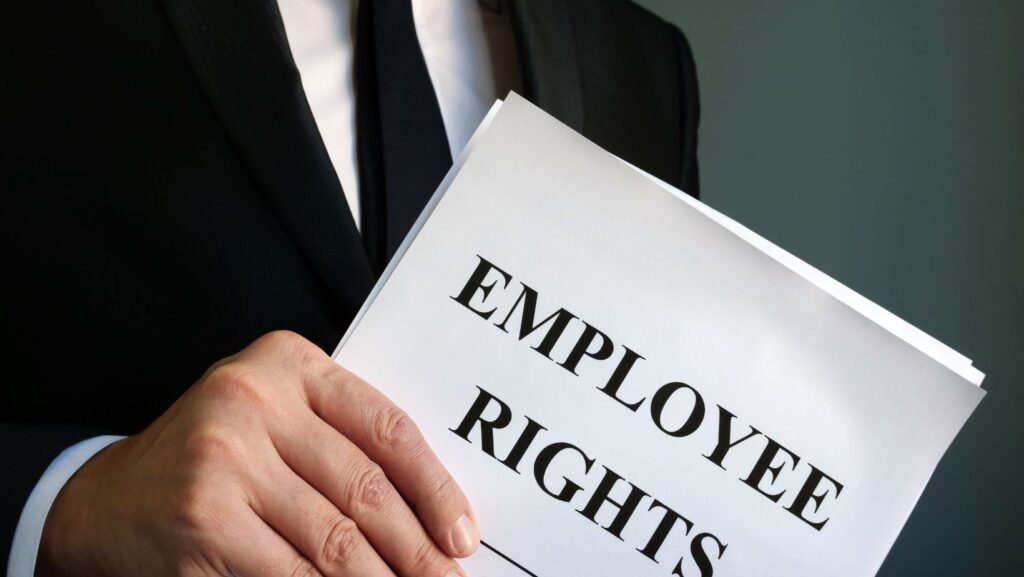Running a business in Florida comes with many rewards — but it also brings serious legal risks. One of the biggest threats to any company’s finances and reputation is an employee lawsuit. Whether it’s a claim for discrimination, wrongful termination, or unpaid wages, these lawsuits can be costly and damaging.
The good news? Most of them are preventable.
Why Legal Protection Matters for Florida Businesses
Employee lawsuits aren’t limited to large corporations — small and midsize businesses are often the most vulnerable. A single claim can lead to thousands in legal fees, disrupt operations, and tarnish your brand reputation.
In Florida, where employment is generally “at-will” (meaning either party can terminate the relationship at any time), many employers assume they’re safe. However, there are numerous exceptions under state and federal laws that protect employees from unlawful actions.
Common triggers for lawsuits include:
- Discrimination or harassment
- Retaliation after filing a complaint
- Wage disputes
- Wrongful termination
Protecting your business means understanding these risks — and building strong legal safeguards before problems arise.
Common Types of Employee Lawsuits in Florida
Understanding the types of claims Florida employers face helps you prepare for and prevent them.
Wrongful Termination
Although Florida is an at-will employment state, employees can still sue if they’re fired for illegal reasons, such as:

- Discrimination (race, age, gender, religion, disability)
- Retaliation after whistleblowing or filing a complaint
- Violations of written contracts or public policy
Employers should always document the reason for termination and follow consistent disciplinary policies.
Discrimination and Harassment
The Florida Civil Rights Act (FCRA) and Title VII of the Civil Rights Act protect employees from discrimination based on protected characteristics.
Harassment — whether verbal, physical, or online — is also covered.
Employers can face liability even if management wasn’t directly involved but failed to prevent or correct the behavior.
Wage and Hour Disputes
The Florida Minimum Wage Act requires employers to pay the state’s minimum wage, which is adjusted annually. Additionally, under the Fair Labor Standards Act (FLSA), employers must pay overtime to non-exempt employees who work more than 40 hours per week.
Failure to maintain proper time records or misclassifying employees as “independent contractors” can easily lead to lawsuits.
Retaliation Claims
An employee who reports wrongdoing — such as safety violations or harassment — is legally protected from retaliation.
Even subtle actions, like reducing hours or excluding the employee from meetings, can be seen as retaliatory behavior.
Stay Compliant with Florida Employment Laws
Compliance is your first line of defense. Florida business owners should stay informed about both state and federal employment regulations.
Key Laws to Understand
- Florida Civil Rights Act (FCRA) – prohibits employment discrimination and harassment.
- Fair Labor Standards Act (FLSA) – governs minimum wage, overtime, and child labor.
- Family and Medical Leave Act (FMLA) – allows eligible employees time off for medical or family reasons.
- Occupational Safety and Health Act (OSHA) – ensures workplace safety standards.
Regularly reviewing your policies with a Florida employment lawyer or an HR compliance expert helps ensure your business stays up to date with all legal developments.
Develop Strong Workplace Policies and an Employee Handbook
Clear, written policies communicate your expectations and demonstrate your commitment to fairness and legal compliance.
Key Policies to Include
- Equal Employment Opportunity (EEO) statement
- Anti-harassment and anti-discrimination rules
- Attendance and performance expectations
- Leave and time-off policies
- Complaint and disciplinary procedures
An employee handbook should be distributed to every employee, signed to confirm understanding, and updated annually.
When disputes arise, this document becomes critical evidence that your business acted reasonably.
Train Managers and Employees Regularly
Even the best policies fail without proper training.
Why Training Matters
- Helps managers recognize and address harassment or discrimination early.
- Reduces misunderstandings that can lead to complaints.
- Encourages consistent enforcement of company rules.
Recommended Training Topics
- Workplace harassment prevention
- Diversity, inclusion, and bias awareness
- Conflict resolution and communication
- Proper documentation and recordkeeping
Conduct annual sessions and keep signed attendance records — they may serve as evidence of compliance during legal proceedings.
Maintain Accurate Documentation and Records
In most employment lawsuits, documentation wins the case.
What to Document
- Job applications and offer letters
- Employee evaluations and disciplinary notes
- Payroll and timesheets
- Complaints and investigation reports
- Training attendance logs
Store these securely for at least four years, as required by Florida law for most employment records.
Digital HR systems can help maintain organized and accessible files.
Know When to Consult a Florida Employment Lawyer
Not every issue requires a lawyer, but early legal advice can save time, stress, and money later.
Seek Legal Counsel When:
- Drafting or revising contracts and handbooks
- Conducting layoffs or disciplinary actions
- Receiving a complaint or demand letter
- Facing a government audit or lawsuit
Partnering with a trusted Florida employment attorney ensures ongoing compliance and provides a valuable safety net in the event of a dispute.
Conclusion: Be Proactive, Not Reactive
Protecting your business from employee lawsuits is about more than avoiding fines — it’s about building a safe, fair, and compliant workplace.
By:
- Following Florida labor laws,
- Maintaining proper documentation,
- Training your team, and
- Working closely with an employment lawyer,

You can significantly reduce your risk of legal trouble and create a stronger, more trustworthy business environment.


More Stories
How Professional Service Firms Build Credibility Online and Why Clear Positioning Matters More Than Ever
How Important Is Speed in Day Trading?
Hot Tech Being Used in Modern Homes